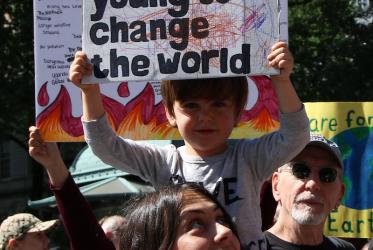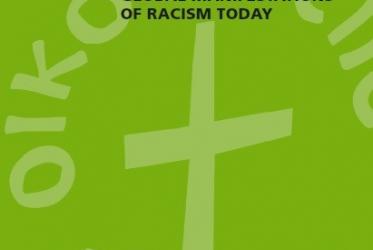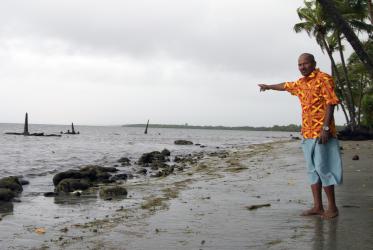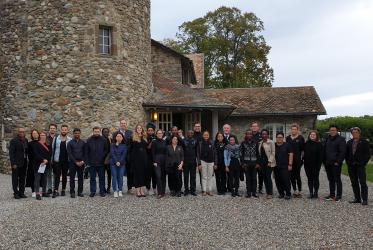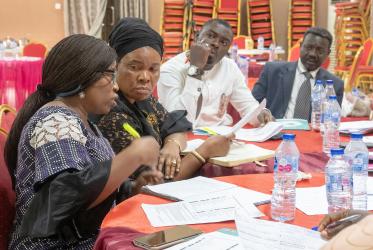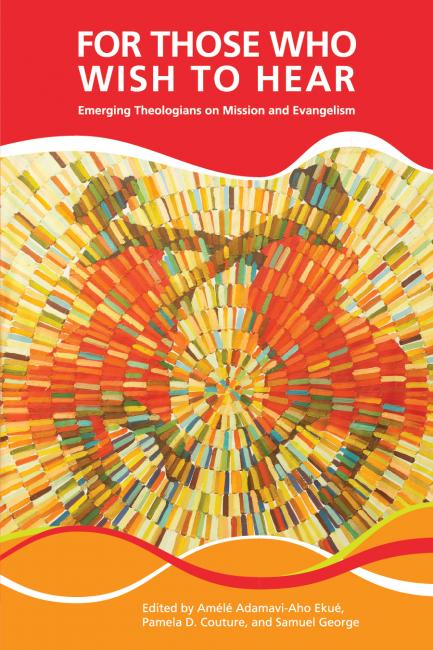Displaying 101 - 120 of 265
09 April 2020
Ecumenical Review focuses on “Global Manifestations of Racism Today”
27 February 2020
Plans for 11th WCC Assembly build excitement across the globe
18 February 2020
WCC welcomes new staff
11 February 2020
Young Africans are eager to grapple with challenges
09 January 2020
WCC Executive Committee meets with eye toward busy future
20 November 2019
Hanbeet Rhee: “Young people can be bridges”
17 October 2019
Bossey students mark Thursdays in Black with Swedish visitors
10 October 2019
Churches in southern Africa stand against violence, xenophobia
10 October 2019
Larissa Aguiar Garcia: "We're opening a safe space”
26 September 2019
Dr Saïd Ailabouni: God is on the side of rejected, oppressed, occupied
12 September 2019

